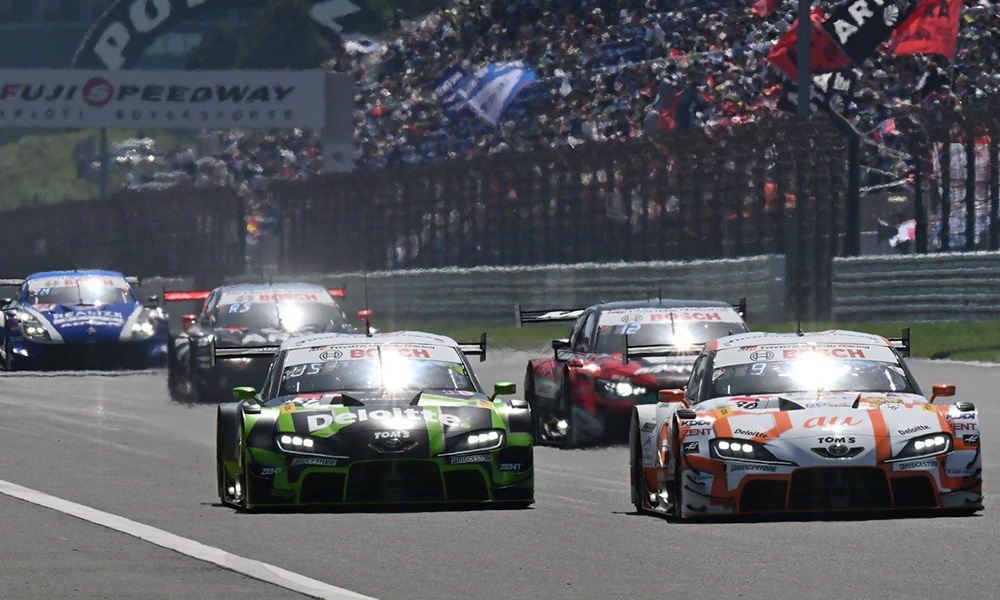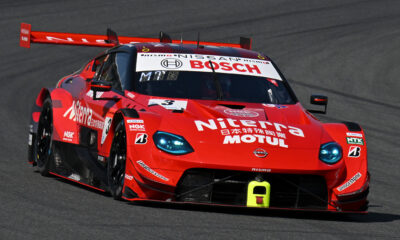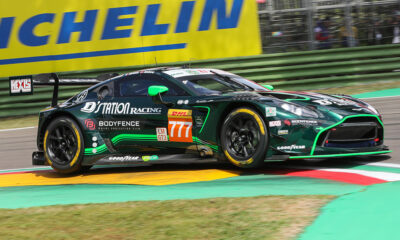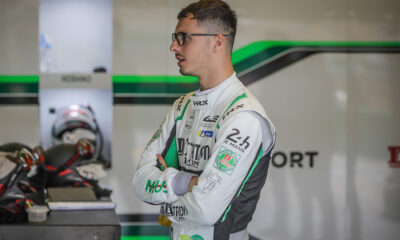
Photo: SUPER GT
SUPER GT boss Masaaki Bandoh has revealed that custom hybrid systems could be a feature of the next-generation GT500 rules, which may be delayed until 2029.
The Japanese series first mentioned the possibility of adding hybrid power to its top class at the end of 2022, with the start of a new regulations cycle in 2027 being earmarked as the earliest point for the technology to be integrated.
It was suggested at the time that this would most likely take the form of a spec hybrid system similar to LMDh cars that race in the FIA World Endurance Championship and IMSA WeatherTech SportsCar Championship.
No decision was made last year on whether to go ahead with hybrids, but speaking last weekend at Fuji Speedway, GTA chairman Bandoh revealed the matter had been discussed in a steering committee meeting held during the season opener at Okayama with the ‘big three’ GT500 manufacturers: Toyota, Nissan and Honda.
While Bandoh stressed no final decisions have been made, he said that in addition to a spec hybrid solution, the option of allowing each manufacturer to build their own system from pre-existing technologies is also on the table.
“We’ve been discussing [the new rules] in the steering committee together with Toyota, Nissan and Honda, and what we are focused on right now is what we should do about hybrid systems and the use of electric power,” said Bandoh.
“We are considering something like LMDh, with parts manufactured domestically, but also whether we could allow Toyota, Nissan and Honda to build their own motors using their own technological prowess and original parts, while keeping costs under control.”
At the beginning of last year, the GTA confirmed that the current GT500 ruleset would be extended to cover the 2024 season, and that the next rules cycle commencing running from 2025 to 2027 would see no major changes.
Giving an update on the possible timeline for significantly revised regulations, including hybrids, Bandoh suggested that 2029 is a more realistic timeframe for the next-generation rules to be introduced.
“Next year, we will introduce a new monocoque for the 15 race cars and the three manufacturer test cars, so all 18 cars will be refreshed,” confirmed Bandoh.
“We wanted to use those until 2027 and introduce new cars in 2028, but while we didn’t reach a definitive conclusion yet, we are now moving in the direction of maintaining the existing regulations until 2028 and then introducing new cars in 2029.
“At the moment, 2028 is looking difficult, so in order to introduce new cars in 2029, we want to test them in 2028, and so we need to be gathering most of the new parts and examining those in 2027.”
SUPER GT has already made several changes to the regulations in recent years in the name of reducing its environmental footprint.
Carbon-neutral fuel has been used in GT500 from the start of last season, with a 50 percent solution being introduced this year for GT300, while the number of tire sets available to teams at each race weekend has also been cut down with the aim of promoting longevity over one-lap speed.
Bandoh has consistently stressed the GTA’s goal of holding “races that produce sound” in the future, ruling out a move to full electric propulsion, but he has previously suggested that hydrogen could be an option for GT500 in the future.
“While considering the next-generation GT500 rules, we need to consider how Japan’s infrastructure concerning electric power and hydrogen will develop in the future,” he said.
“We will proceed while considering what role we can play with our development and what kind of effect it will have on Japan’s infrastructure.”


























